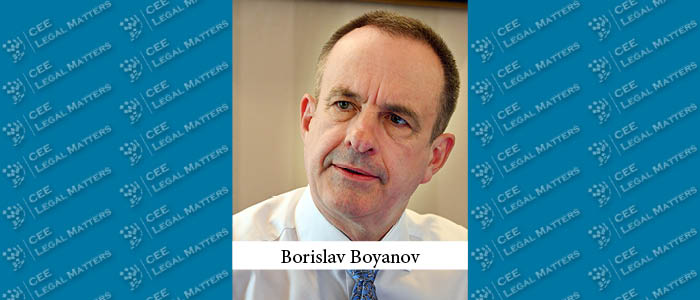In an era of unprecedented challenges, the legal profession in Central and Eastern Europe (CEE) is at the forefront of navigating these turbulent times. We face a vast array of challenges, including wars, the rise of nationalism, global tensions, energy crises, economic uncertainties, pandemics, climate change, and the rapid pace of digital transformation. Each of these significantly impacts both our lives and profession.
We witness the resilience of Ukrainian lawyers working under rocket attacks for nearly two years. Young Greek lawyers started rapidly to specialize in climate law. Impressive AIs like Allen & Overy’s Harvey and innovative legal tech products by Serbian and Hungarian colleagues highlight the evolving legal technology landscape, which is going to reshape dramatically the way we practice for sure.
As the end of the year is approaching, there is a sense of hopeful anticipation for what the new year may bring.
We see national independent law firms in CEE continue to grow and become more sophisticated and capable. There are brands with strong corporate culture, proper structures, and wide international recognition. They are attractive destinations to both clients and the younger generation of lawyers. While succession remains a challenge for some leading firms with over 25-30 years of history, alongside their famous veterans, a new generation of modern, knowledgeable, and innovative partners is emerging. The region has real leaders who not only navigate successfully domestic and international clients but also steer their firms through these dynamic times.
A critical aspect of our work is the role of law firms in democratic societies of CEE. These firms must be at the forefront, advocating for the rule of law and the values of civil society. Law firms are called upon to voice the improvement of the business climate and social conditions in our countries and the region.
Cross-border cooperation is another significant aspect. Our work often involves international elements, leading us to seek and create various forms of international collaboration, such as clubs, networks, alliances, and groups. This international coverage, while not homogeneous, offers both advantages and disadvantages compared to international law firms operating in CEE. Local firms in the majority of cases still have the benefit of deeper roots, broader experience, and contacts. Moreover, we strive to build international outreach and find proper partners who can deliver high-quality, speedy services to our clients. Of course, relations with international law firms help a lot and continue to be very important. International cooperation becomes increasingly essential for our firms’ existence and development. Imagine for a moment how a mid-sized independent law firm competes with an international law firm or a giant from the Big Four group in terms of spending on AI or business development, for example. There is much to be seen in the direction of international cooperation. The challenges will become so big that they undoubtedly will transform the nature and scope of the different forms of international collaboration. In addition, we expect to see more joint efforts between law firms and IT companies and other consultants.
Indigenous law firms in CEE will continue to face typical professional challenges such as an ongoing war for talent, different perceptions among the younger generation toward the profession, salary pressures from international law firms and clients from certain industries, limited capacity for substantial AI and other tech investments, cyberse-curity issues, the necessity of revaluation, and adapt law firm business models. Reflecting on the legal market’s developments over the last 35 years, however, we see that local lawyers are individuals of strong character, stamina, and intellectual capacity. They have managed to survive and thrive through various difficulties, a testament to their resilience and adaptability. Many of them are names of international caliber.
As we look toward the future, the challenges we face will only make us stronger, more connected, and more innovative. We are hopeful that the legal profession in CEE, with its deep-rooted resilience, stands ready to meet these challenges head-on.
By Borislav Boyanov, Senior Partner, Boyanov & Co
This article was originally published in Issue 10.12 of the CEE Legal Matters Magazine. If you would like to receive a hard copy of the magazine, you can subscribe here.
